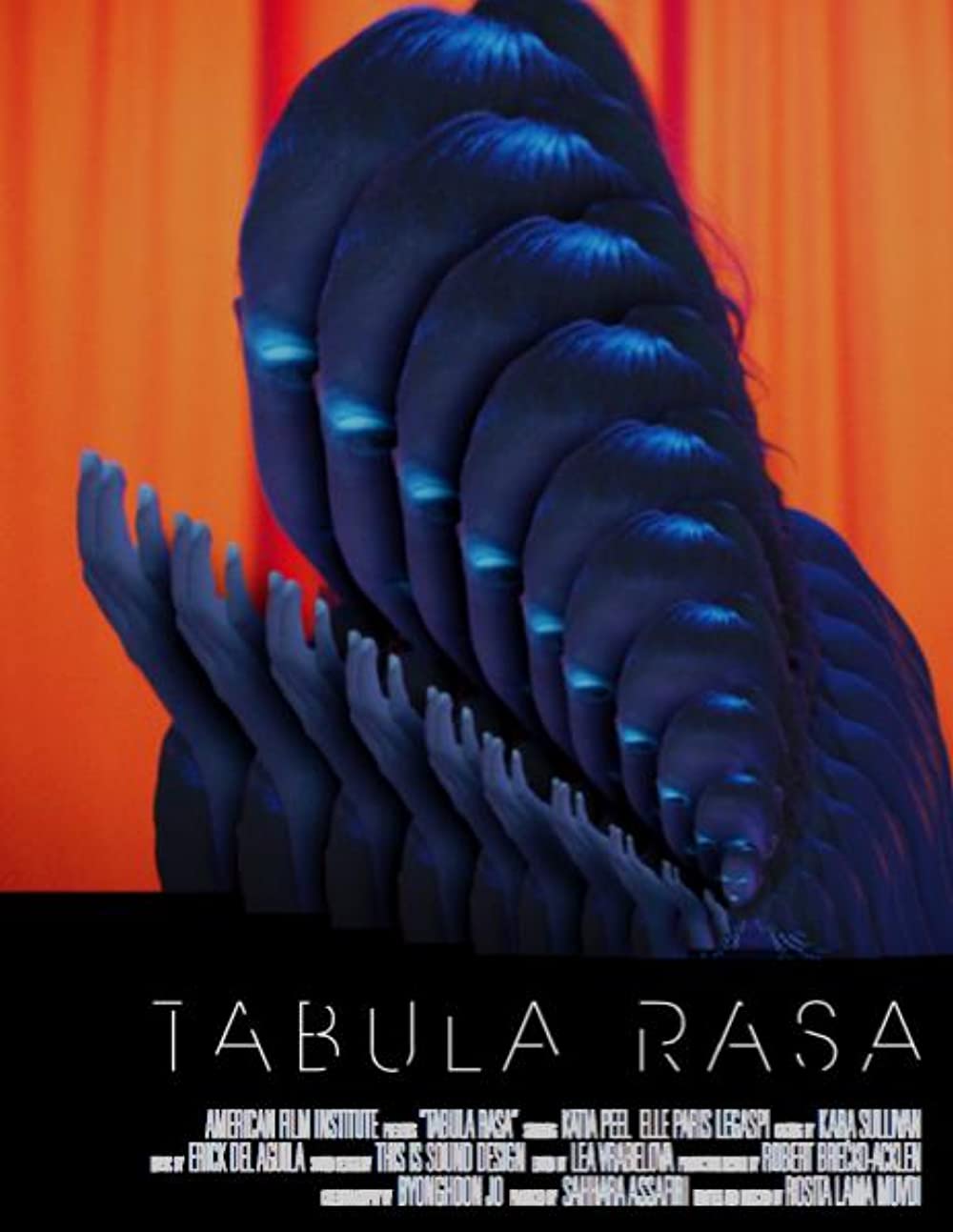
Rosita Lama Muvdi
Rosita is a Colombian directress and screenwriter who believes we all have a monster lurking deep inside us and, every now and then, an uncontrollable hunger forces us to surrender to that darkness and allow our inner monster to come out and play. The darkness in female sexuality, the perversion in the mundane, and viscerally penetrating emotional imagery are themes that are ever-present in Rosita’’s work. Rosita pursued a B.S. in Film and Television at Boston University where her film SOMBRA AZUL won first place at the Redstone Film Festival. After graduating, Rosita worked as Director of Production at Coliseo Films where she directed television, commercial and documentary work in Colombia. Rosita later obtained her M.F.A. in Directing at the American Film Institute Conservatory where she wrote and directed her thesis film LA SIRENA, a psychosexual fairy tale about a woman who surrenders to her inner monster to avenge her broken heart.
Q & A
If the world you created in your film became a reality, is that a world you would want to live in? Is there a Sci-Fi world you’d buy a one-way ticket to?
I think the world of TABULA RASA mirrors the world women currently live in, where girls are consciously and subconsciously forcefully fed a gendered identity that they have to grow into before they’re often able to discover it themselves. I think slowly, the world children are growing up in today allows for a certain freedom in their coming of age, however, this unfortunately isn’t the case everywhere. So, no, I do not like that this is the reality that TABULA RASA examines. But I am hopefully that, as a society, we are moving away from that monster that shackles us, and allowing for more freedom and awareness that new generations will benefit from.
Name a Sci-Fi character you relate to on a spiritual level? Who is your Sci-Fi spirit animal/spirit alien?
Louise Banks (Amy Adams) in ARRIVAL is a wonderful character. She is someone who takes the time to truly understand and learn the language of the heptapods and ultimately saves the world in many ways from potential disaster through the power of communication and empathy. The film touches on many important themes, but I think it’s beautiful that this is one of the few sci-fi characters that doesn’t use violence against the unknown. Instead, her empathy, openness, and willingness to truly connect with an unknown species is a quality I wish the world, its leaders, and our society as a whole would embrace.
Friend or Foe: humanoid robots with advanced artificial intelligence? What if robots start making their own Sci-Fi films? Will you support them in their endeavors?
Humans are usually the creators and perpetuators of monsters, so to think of a machine or robot created by us as foe is an interesting observation to look at. And if they started making films, well, I think I’d question the judgement of the people investing in a robot’s films rather than funding all the other potential stories lived by humans with powerful voices.
In 1996, Bugs Bunny recruited Michael Jordan and Bill Murray to form the greatest basketball squad of all-time, the Tune Squad; you’re Bugs, who’s on your Sci-Fi Tune Squad?
All the characters Sigourney Weaver ever played in a sci-fi.
You’ve gotta go through some bad ideas to get to the good ones. Tell us one of your bad ideas. How do you get past the bad ones to find your spark?
In every bad idea there’s a kernel of truth that births a great idea. It’s finding the impulse behind the thought. It’s about digging deeper and figuring out what the essence behind that “bad idea” is. And when we’re able to dive in with enough self-awareness, I think we’re able to understand what we’re truly trying to communicate as artists. Maybe there are no bad ideas, only unexamined ones.
Do you consider yourself part of a sci-fi community? Or when your brain is in the future and your body’s in the present, is that isolating?
I think our current reality used to be a previous generation’s sci-fi. So maybe we’re all part of a science fiction community if you really think about it.
Do you consider yourself more of an analog or digital person? What kind of balance do strike between the two? Is there a disconnect between the technology you make films about and the technology that you make films with?
I’m definitely in the middle. For example, I’m typing up these answers on a computer, but when I’m brainstorming a new idea, I write longhand. And as far as my films go, I think there’s usually more of a supernatural element to the world, even when it comes to technology. I my films, I tend to avoid including modern technology in them as much as possible, but perhaps it’s an interesting time to embrace it more as I create new stories moving forward.
When you’re creating the props and sets that make a new world, where do you look for inspiration? How do you create objects that are relatable but unfamiliar?
In TABULA RASA, I worked with production designer Robert Brecko to turn a house into the monster of the film. One that felt both grotesque and organic, as well as dark and sterile. The familiarity we wanted to achieve was more about making this house feel human in the ways it devours the girls and swallows their innocence. Sound design was also an important element in creating this familiarity and making the house a monstrous character in the film.
Lightning round: Star Wars or Star Trek? Philip K. Dick or William S. Burroughs? Practical or CGI? Dystopia or Utopia? Post Apocalypse or Pre Apocalypse?
Star Wars How about Octavia Butler instead? CGI Utopia Pre-Apocalypse


